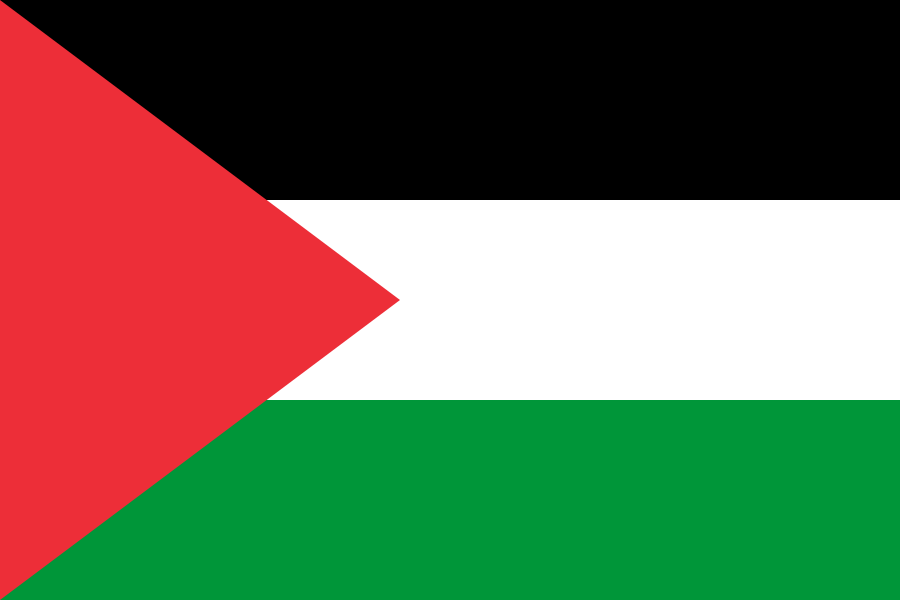Palestine
146 out of 193 UN member states recognise the State of Palestine.

Key words
- Vassal State: a country that is controlled by a more powerful country
The vassal states of the Ottoman Empire were obliged to support the Ottomans.
- Exile: the condition of someone being sent or kept away from their own country
The deposed leaders are currently in exile in the neighbouring country.
- Mandate: the name of an area of land that has been given to a country by the UN, following or as part of a peace agreement
The mandate government developed administrative institutions, municipal services, public works, and transport.
- Zionism: a political movement that had as its original aim the creation of a country for Jewish people, and that now supports the state of Israel
Zionism, or Jewish nationalism, is a modern political movement.
- Abstain: to decide not to use your vote
63 members voted in favour, 39 opposed, and 15 abstained.
Read the article to find the answers
- When was the Kingdom of Israel was established?
- When did it end?
- Who failed to establish a Jewish state in Palestine?
- Which members of the United Nations General Assembly voted in favour of the creation of a Jewish state?
The Kingdom of Israel
The Kingdom of Israel was established around the late 11th century BC. Saul was the first king, followed by David and Solomon. After Solomon's death, the kingdom split into two: the Kingdom of Israel and the Kingdom of Judah.
The Kingdom of Israel was destroyed by the Assyrian Empire and the Kingdom of Judah became a vassal state of Assyria, then Egypt and later Babylon. The king of Babylon destroyed Jerusalem and the Jews were exiled. Persia later allowed the Jews to return to Judah, but the Greeks and Romans ruled over them. The Roman army destroyed Jerusalem in 70 AD and Judea ceased to exist after the Roman province was renamed 'Syria Palaestina'.
Islamic Rule
The period between Roman rule and the British Mandate was marked by a succession of empires. Arab armies conquered Palestine in 638 AD, after which the Dome of the Rock and the Al-Aqsa Mosque were built.
In 1099, European Crusaders conquered Jerusalem during the First Crusade and established the Kingdom of Jerusalem. Muslim's recaptured Jerusalem in 1187.
The Ottoman Empire ruled Palestine from 1517 until the end of World War I in 1917. In 1799, Napoleon Bonaparte attempted to challenge the Ottoman and British Empires by establishing a Jewish state in Palestine, but failed.
The British Mandate for Palestine
During the First World War, Britain fought against the Ottoman Empire and captured Jerusalem in December 1917. After the war, the League of Nations gave Britain a mandate to govern Palestine. One of the aims of the mandate was to prepare the territory for self-government.
British Foreign Secretary Arthur Balfour declared his support for Zionism and it wasn't long before European immigration to Palestine increased significantly, leading to a nationalist uprising by Palestinian Arabs. Britain soon struggled to maintain control over Palestine due to increasing violence and terrorist attacks by Jewish groups such as the Irgun.
In 1947, Britain referred the question of Palestine to the United Nations, which proposed a plan to partition Palestine into separate Jewish and Arab states. Jewish leaders accepted the plan, but the Arabs rejected it. In 1948, Britain ended its mandate and David Ben-Gurion declared the establishment of the State of Israel. The next day, neighbouring Arab countries invaded, marking the beginning of the Arab-Israeli wars.
UN General Assembly Resolution 181
33 members of the United Nations General Assembly voted in favour of the creation of a Jewish state. 13 voted against and 10 abstained. Bolivia, Costa Rica, Dominican Republic, Ecuador, Guatemala, Haiti, Nicaragua, Panama, Paraguay, Peru, Uruguay, and Venezuela were among those voting in favour. Egypt, Iran, Iraq, Lebanon, Syria, Turkey, and Yemen were among those voting against. The United Kingdom was among those who abstained.
Discussion questions
- Do you have any questions about any of the vocabulary or grammar in this article?
- Why do you think so many Central and South American countries supported the creation of a Jewish state?
- Why do you think none of the Arab countries supported the creation of a Jewish state?
- How many good things can you list that the UN has done?
- Would you like a mass immigration of Europeans into your country?
- Has there ever been a mass migration to your country?

Book a Lesson
Improve your English language communication skills by practicing with a qualified and experienced native speaker.





